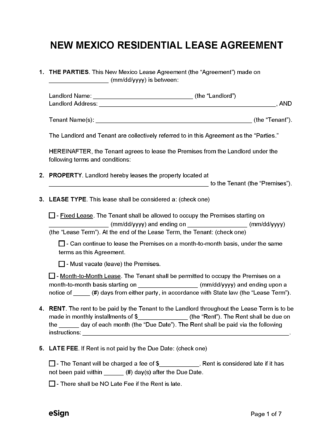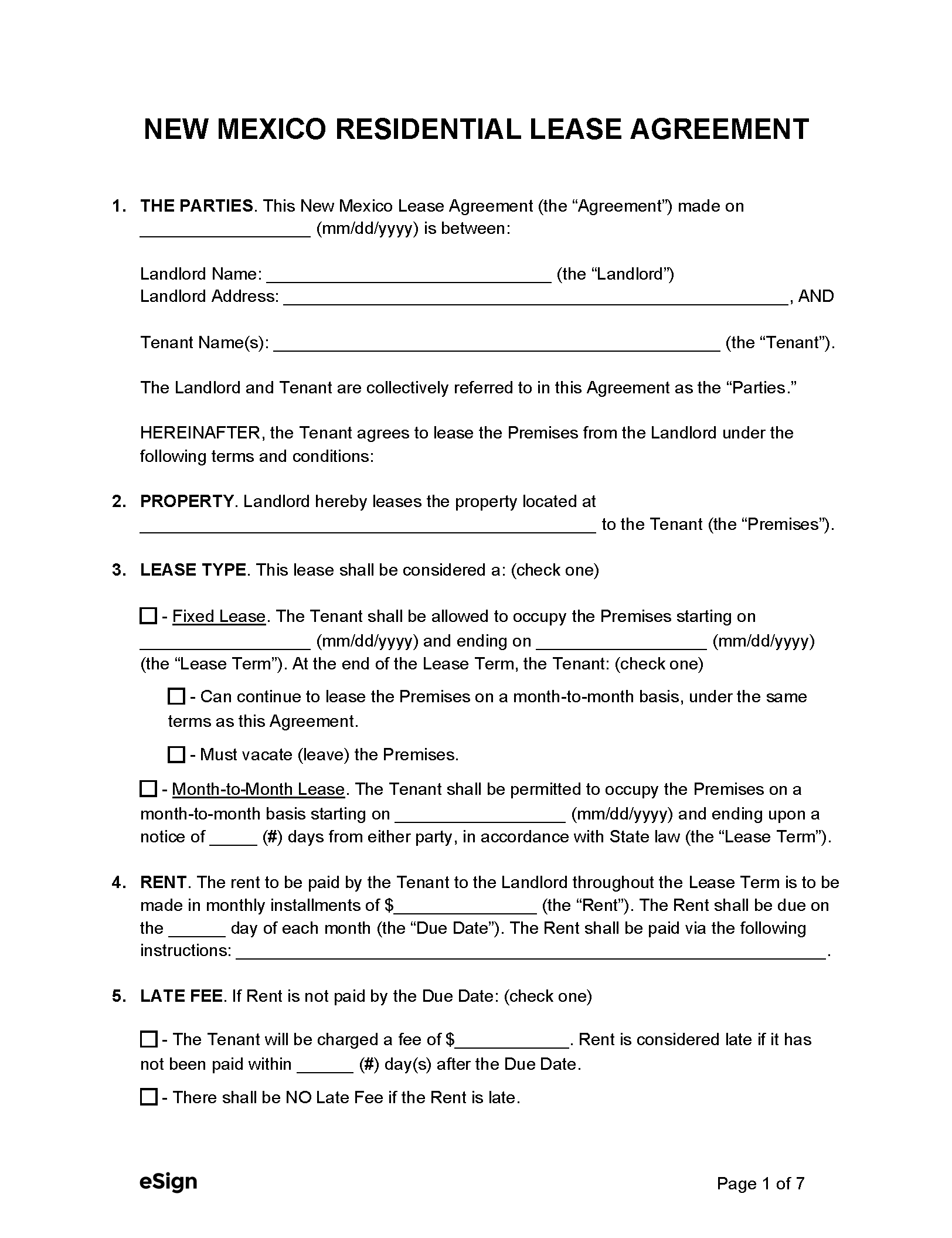Lease Agreements: By Type (6)
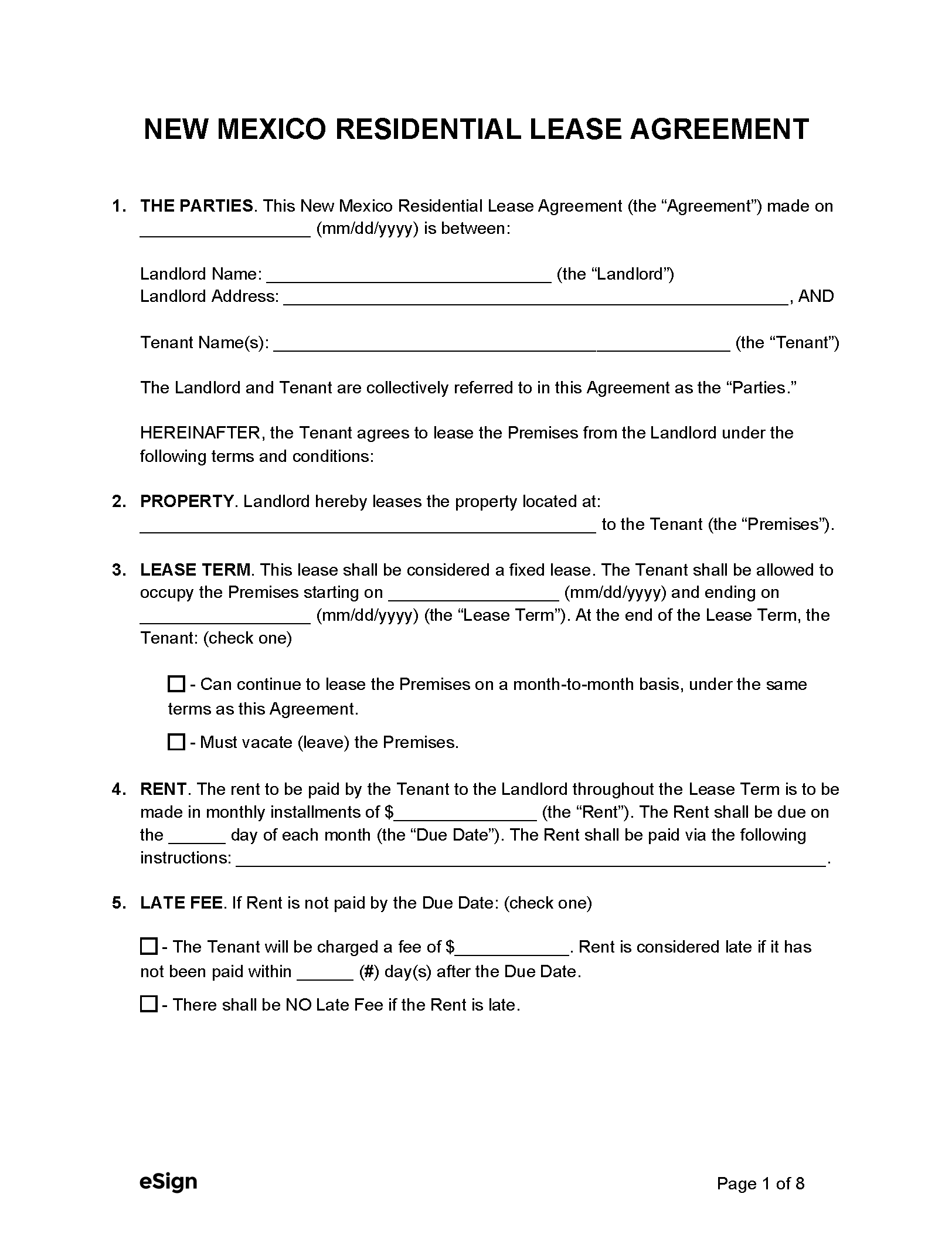 Standard (1-Year) Lease Agreement – A standard lease agreement is a one-year rental contract that usually provides the tenant with the option to renew. Standard (1-Year) Lease Agreement – A standard lease agreement is a one-year rental contract that usually provides the tenant with the option to renew.
Download: PDF, Word (.docx), OpenDocument |
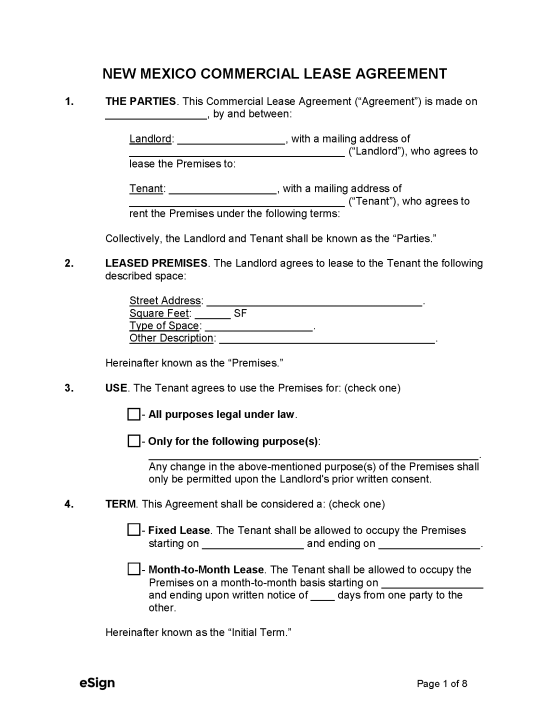 Commercial Lease Agreement – A commercial lease is a written contract used to rent out real estate to an individual or business entity. Commercial Lease Agreement – A commercial lease is a written contract used to rent out real estate to an individual or business entity.
Download: PDF, Word (.docx), OpenDocument |
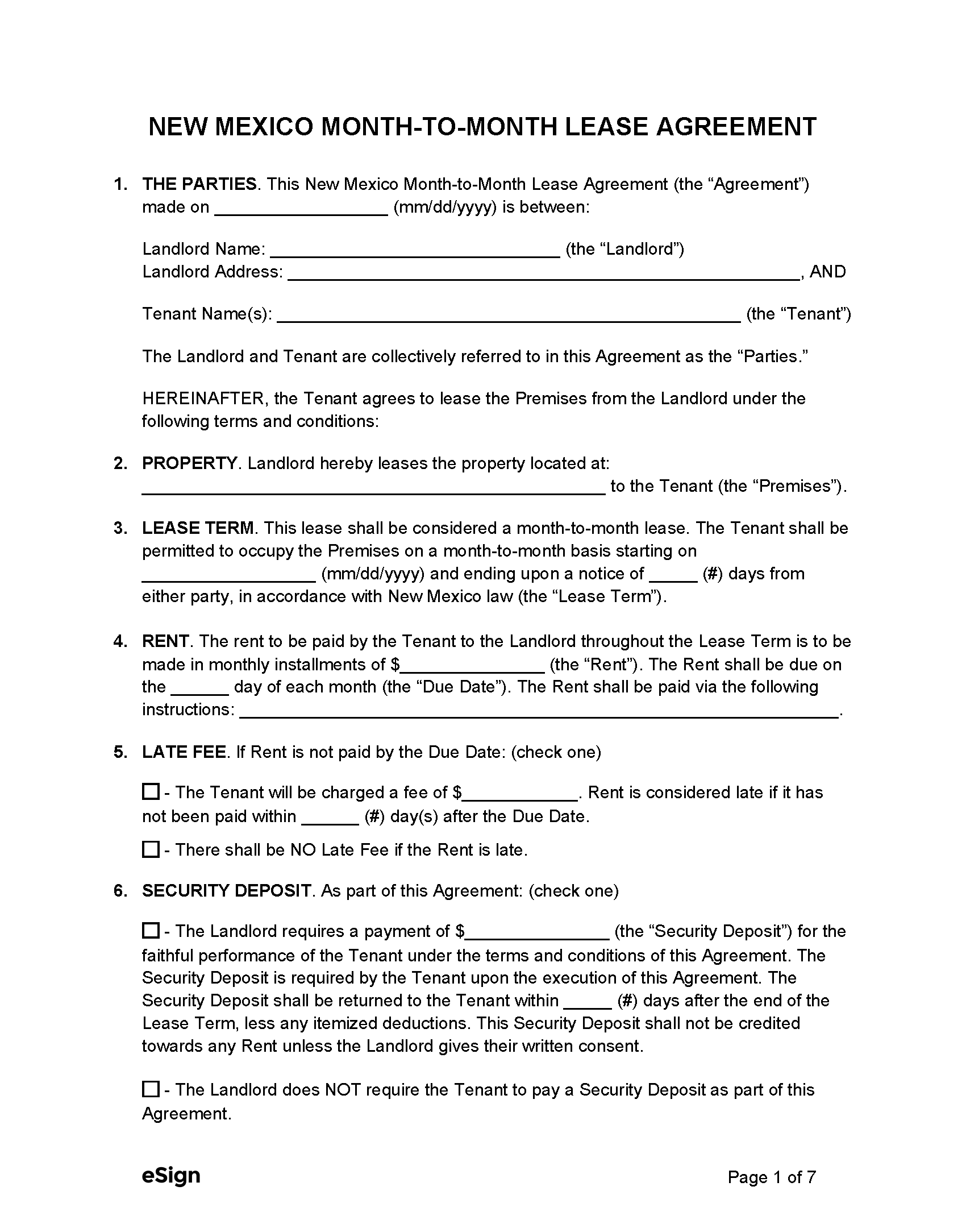 Month-to-Month Lease Agreement – A flexible rental contract that renews monthly with no set termination date. Month-to-Month Lease Agreement – A flexible rental contract that renews monthly with no set termination date.
Download: PDF, Word (.docx), OpenDocument |
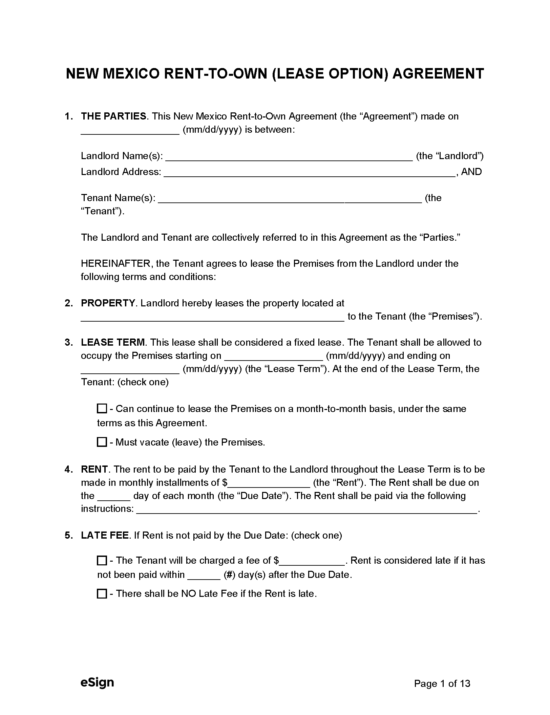 Rent-to-Own Agreement (Lease Option) – With this agreement, the tenant is given the option to purchase the rental property. Rent-to-Own Agreement (Lease Option) – With this agreement, the tenant is given the option to purchase the rental property.
Download: PDF, Word (.docx), OpenDocument |
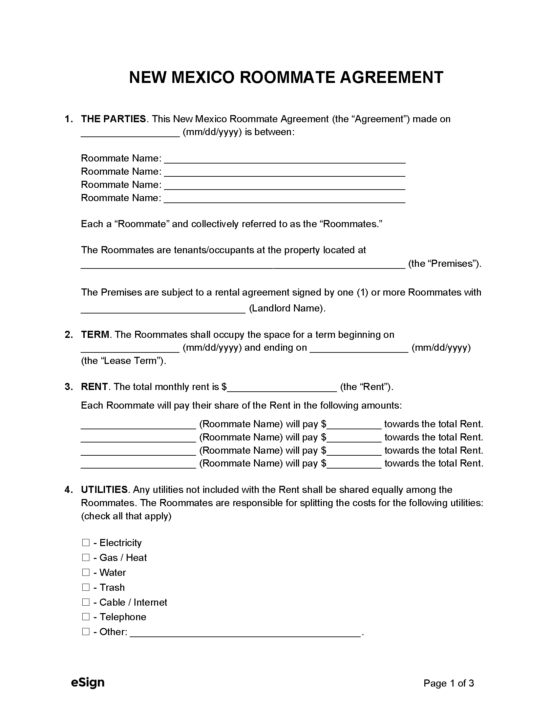 Roommate Agreement – A roommate agreement is a helpful document that allows individuals who live together to agree to a set of house rules and responsibilities. Roommate Agreement – A roommate agreement is a helpful document that allows individuals who live together to agree to a set of house rules and responsibilities.
Download: PDF, Word (.docx), OpenDocument |
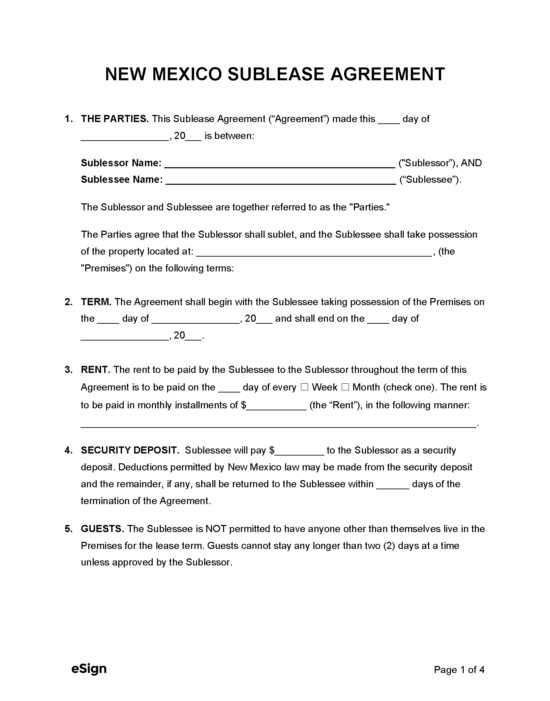 Sublease Agreement – With the landlord’s permission, tenants can use this contract to sublease their rental space. Sublease Agreement – With the landlord’s permission, tenants can use this contract to sublease their rental space.
Download: PDF, Word (.docx), OpenDocument |
Required Disclosures (3)
- Copy of the Rental Agreement – The landlord must give a copy of the written rental agreement to each tenant before they move in.[1]
- Lead-Based Paint Disclosure (PDF) – If the property was built before 1978, the landlord must deliver this disclosure to the tenant to notify them of the potential existence of hazardous paint on the property.[2]
- Owner Disclosure – The tenant must be provided with the name, address, and telephone number of the person permitted to manage the premises and the property owner or a representative of the owner who is authorized to receive service of process, notices, and demands.[3]
Security Deposits
Maximum Amount ($) – New Mexico does not specify a damage deposit limit, it only states that it must be “reasonable.”[4]
- Exceptions – For a rental agreement with a duration of less than one year, the landlord cannot collect a deposit of more than one month’s rent.[5]
Collecting Interest – If the security deposit is greater than one month’s rent, the landlord must pay the tenant annual interest.[6]
Returning to Tenant – The landlord must return the security deposit to the tenant within 30 days of the termination date.[7]
Itemized List Required? – Yes, the landlord must provide the tenant with a written list detailing why security deposit deductions have been made.[8]
Separate Bank Account? – No state law requires that the landlord keep the security deposit in a separate account.
Landlord’s Entry
General Access – The tenant must be given 24 hours’ notice before the landlord or their representative can access the rental unit.[9]
Immediate Access – The landlord is not required to obtain consent before entering the property in an emergency.[10] Additionally, notice is not required[11]:
- Within seven days of a request for repairs by the tenant.
- If the owner is doing an inspection with a public official or a representative from the gas, electric, cable TV, or telephone company.
- If the tenant has been absent from the property for at least seven days.[12]
Rent Payments
Grace Period – Landlords are not required by law to give a grace period before charging a fee on late rent payments.
Maximum Late Fee ($) – Late fees cannot exceed ten percent of the total rent for that period.[13]
Withholding Rent – If the property is unsafe or essential services are not in working order, and if the landlord fails to make repairs within seven days of being notified, the tenant can withhold one-third of the daily rent until the problem is fixed. If the premises are uninhabitable, the tenant can withhold 100% of the rent.[14]
Breaking a Lease
Non-Payment of Rent – If the tenant has not paid their rent on time, the landlord may serve them a 3-day notice to quit.[15]
Non-Compliance – A 7-day notice to quit can be sent for lease violations. The tenant may be given the option to cure, depending on whether it’s the first violation.[16]
Lockouts – The landlord may not change the locks or attempt to evict the tenant without a court order.[17]
Leaving Before the End Date – If the tenant abandons the property, the landlord may take possession and attempt to rerent the property. [18] If rerented, the old tenancy will terminate when the new tenancy begins. The landlord must attempt to mitigate damages by genuinely trying to find a new tenant.[19]
Lease Termination
Month-to-Month Tenancy – Either party may terminate a month-to-month tenancy with a 30-day notice.[20]
Unclaimed Property – The landlord must hold onto the tenant’s personal property for 14 days if the tenant surrenders the property voluntarily, 30 days if they abandon the property, and 3 days if they’re evicted.[21]
